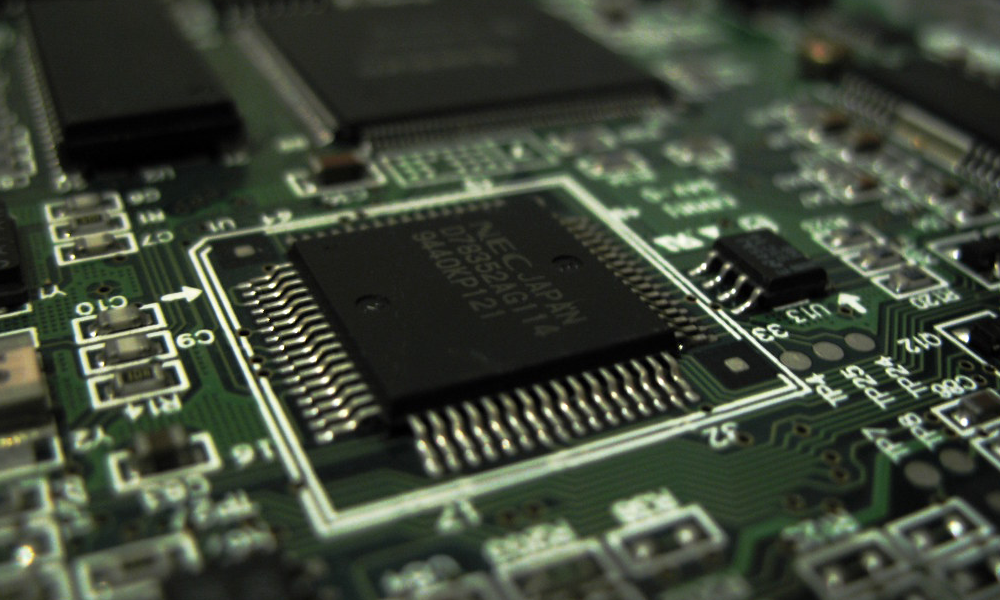Become Masters in Electronic Science
-
25
Student
-
4.3
Reviews (23)
-
Semester
4 Semesters

Vision of the Department
To be recognised as an established Department for academics and research that prepares the students to address the challenges of modern electronics industry through state of art technical knowledge and innovative approaches
Mission
Mission is to provide quality education using modern tools and facilities that will produce globally competence professional in the field of electronics;to assist students to solve interesting problems that will encourage the research activities in department;to promote interaction with industry and other reputed institutes for mutual benefit.
Learning Outcomes
- Enhance knowledge by understanding, experimenting and comparing information (existing and new) in the field of electronics
- Demonstrate ability to model, simulate and evaluate the phenomenon and systems in the chosen areas of electronics.
- Use state-of-the-art tools to design, development and analysis problems and provide timebound and economical solutions.
- Work in collaborative manner with others in a team, contribute to the management,planning and implementations.
- Effectively communicate technical content through written reports/design documents, and presentations
- Engage in lifelong learning independently to enhance knowledge and skills that can contribute to the continuous improvement of individuals and society.
Share :
Curriculum
Semester 1
| Course Code | Subject | Core/Elective | Credit | Hours/Week |
|---|---|---|---|---|
| 20-305-0101 | Electronic Circuits | C | 4 | 5 |
| 20-305-0102 | Signals & Systems | C | 4 | 5 |
| 20-305-0103 | Digital System Design | C | 4 | 5 |
| 20-305-0104 | RF & Microwave Technology | C | 4 | 5 |
| 20-305-0105 | Programming for Embedded System | C | 4 | 5 |
| 20-305-0106 | Electronic Circuits Lab | C | 1 | 4 |
| 20-305-0107 | Signals & Systems Lab | C | 1 | 4 |
Semester 2
| Course Code | Subject | Core/Elective | Credit | Hours/Week |
|---|---|---|---|---|
| 20-305-0201 | Embedded System Design | C | 4 | 5 |
| 20-305-0202 | Control Systems | C | 4 | 5 |
| 20-305-0203 | Digital Signal Processing | C | 4 | 5 |
| 20-305-0204 | Seminar | C | 1 | 2 |
| 20-305-0205 | Embedded System Design Lab | C | 1 | 4 |
| 20-305-0206 | Control Systems Lab | C | 1 | 5 |
| Elective I | E | 3 | 4 |
Semester 3
| Course Code | Subject | Core/Elective | Credit | Hours/Week |
|---|---|---|---|---|
| 20-305-0301 | Project Part 1 | C | 0 | 5 |
| 20-305-0302 | Communication Systems | C | 4 | 5 |
| 20-305-0303 | VLSI System Design | C | 4 | 5 |
| 20-305-0304 | Communications Lab | C | 1 | 1 |
| Elective II | C | 1 | 4 | |
| Elective III | C | 3 | 4 | |
| Elective Lab | E | 3 | 1 |
Semester 4
| Project Part 2 | C | 13 | 20 | |
| Elective IV | E | 3 | 4 |
Faculty
-

Simulation of analog and digital circuits using OR-CAD.Analysis of electronic circuits using active devices.Understand the working of PLL.
-

Implementation of basic signal processing techniques in Octave/MATLAB/Python
-

This lab will involve working on programming embedded devices, communicating with peripherals.
-

This lab aims to familiarize with the modeling of dynamical systems and the characteristics of control components like dc motor, Compensator etc. To model, simulate and analyzesystems using MATLAB software
-

Implementation of basic analog and digital communication techniques in MATLAB/Labview
-

This lab aims to familiarize with the implementation in the specific elective selected

Arun A Balakrishnan
Completed post graduation in Signal Processing with a CGPA of 9.53 (First Rank) and graduation in Electronics & Communication Engineering with an aggregate of 81.46% (Fourth Rank).
Mithun Haridas T.P.
Mithun started his career in CUSAT in 2015. Before joining DoE, CUSAT, he had Industrial Experience in IBM India for more than 3 years.
Tripti S Warrier
Dr. Tripti received her B.Tech in Electronics in 2002, M.Tech in Digital Electronics and Advanced Communications in 2005. Received her Ph.D in 2016 from IIT Chennai
Deepti Das Krishna
Deepti Das Krishna is currently working as an Assistant Professor with the Department of Electronics. She has worked as a PI under the DST WoSA while working towards her PhD
Kumary V Y Vidhu
Kumary V Y Vidhu started her career in CUSAT in 2018. Currently doing research at DOE, CUSAT in the field of Metamaterials and RCS.
Supriya M H
Supriya started her career in CUSAT in 1999. She was awarded Ph.D in the year 2008. She has more than 150 publications, a patent and few awards to her credit.
Nalesh S
Nalesh received his B.Tech in ECE from NIT Calicut in 2003. He completed his M.Tech from IIT Delhi in 2010 and received his PhD from IISc, Bangalore in 2018.